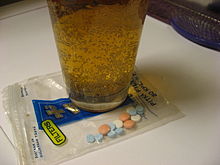Did you know the leading cause of relapse for those in recovery is cross-addiction? In other words, once you’ve dealt with one addiction, there is a much greater likelihood you’ll experience another one, whether to a substance or behavior. To avoid cross addiction, it’s important to be vigilant in your lifestyle habits and maintain a strong support network after treatment is finished. The Theory The idea of cross-addiction is essentially this: if you are addicted to one substance, you are addicted to all substances. You must be constantly aware of the possibility of relapse and avoid any mind-altering behavior, whether ingesting alcohol or drugs (illicit, prescription or over-the-counter) or engaging in addictive behavior such as gambling, binge eating, excessive shopping and sex addiction. Even seemingly innocent items, such as mouthwash or Benadryl, can prove risky. Understanding Addiction Recovering individuals may think ingesting addictive substances is permissible so long as it isn’t their drug of choice. The biochemistry of addiction, however, is a bit more complicated than that. Substances, as well as certain compulsive behaviors such as gambling or shopping, cause changes in the way the brain processes executive functions such as the following:
- Decision making
- Risk assessment
- Remembering consequences and reward.
Simply put, the brain develops a strong association between feeling pleasure and the addictive activity. As abuse progresses, the brain comes to rely exclusively on the addictive activity to create good feelings. In the worst cases, feeling normal is impossible without using. The brain forgets addictive behavior can end in serious consequences. Legal trouble, divorce, or health problems aren’t enough to stop the addiction. The addicted individual might blame other problems or people for the troubles caused by the substance or behavior instead of accepting personal responsibility. Many addicted individuals do not quit or seek help until they reach rock bottom. If they try to quit alone, uncomfortable withdrawal symptoms result, accompanied by severe cravings. This explains how people become trapped in a cycle of addiction. Any addictive compound stimulates receptors in the brain capable of triggering an addiction. There is real potential for the person to relapse, whether for the original drug or a new substance or behavior. The Importance of Vigilance To reduce the likelihood of cross-addiction, it’s important to be open and honest with any doctors seen during or after recovery. Explain your addiction history and instruct that no addictive medications should ever be prescribed. Report persistent problems with any of the following:
- Sleep
- Concentration
- Anxious or sad feelings
- Relationships
There is a strong link between treatable disorders such as depression or anxiety and addiction. Many individuals unknowingly self-treat these disorders with alcohol, drugs, or destructive behaviors such as compulsive shopping or gambling. Cross addiction risk is a threat to your sobriety, so ask for help before you engage in dangerous behaviors that can cause relapse. If your doctor recommends medication, read more about it to make sure you aren’t accidentally taking an addictive drug. Don’t expect your doctor to be familiar with the addictive properties of every drug on the market. Take the time to do a bit of research on which drugs pose addiction risks and which don’t. If a medication with addictive properties must be prescribed as a last resort, it should be taken for a limited time and under the close supervision of a recovery specialist. Addiction is a treatable disease that requires a lifetime of vigilance. Protect yourself — and your loved ones — and avoid behaviors that can lead to trouble. (photo via)

